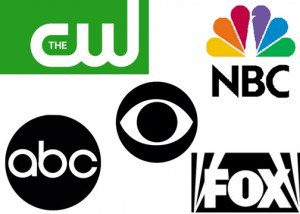It’s not just the telephone and cable companies that must change and adapt to stay viable in this new era of online video, but the providers of all that great content as well. Network TV has been engaged in its own battle over the last few of decades to try to maintain its relevance in the cable TV era. In this time we’ve see the dilution of the network TV brands. No longer is TV a network-centric market dominated by the big four of ABC, CBS, NBC and FOX, but as the adoption of cable television began to trump over-the-air broadcasting, networks have had to deal with the fact that they are now just one channel among hundreds that viewers have to choose from.
Today network TV has yet another paradigm shift it must adapt to: the convergence of video entertainment and the Internet. This shift no doubt could further dilute their brand, but this problem didn’t begin with the advent of the Internet or the emergence of content providers such as Hulu and YouTube as some would have you believe.
Kevin Wassong contributing editor for paidContent.org wrote on Monday in Memo To Networks Re Hulu: You’re Making A Big Mistake, “the form and function of Hulu is great—but it may also represent the greatest destruction of media value in our lifetime.” This is a pretty big claim considering the damage that has already been done by cable TV. I argue that the greatest destruction of media value has come from, to quote Bruce Springsteen, “fifty-seven channels and nothin’ on”. The problem is being forced to purchase packages of bland, uninteresting content to be able to watch the handful of shows that are worth watching. Wassong goes on to elaborate:
So how might this represent a massive destruction of media value? Start with the premise that Hulu is creating the Uber-Brand of media, and the networks have simply relegated themselves to being content producers. In essence, the networks have quit. What happened to the value of a network brand?
It became irrelevant. Back in the day of the big four, network branding was important, or at very least possible. You gathered the family around the TV in the evening and you had to decide which channel to watch, and if two shows you liked equally came on at the same time, you had to choose one or the other. In this situation it could very well be the network name that swayed your decision. When Fox came on the scene it was touted as the “rogue” network, the underdog. If you wanted to see something edgy that pushed the censorship limits, you watched Fox. This was an era where network names still carried a connotation of the type of content you would find there. This is the era Mr. Wassong is still living in:
The value of NBC is not in a show like Heroes or Friends. The value of NBC is the more than 70 years that it has taken the network to create expectations for generations. Expectations that a network will be a leader in comedy or drama or variety or reality programming. The years that it has taken the network to train consumers to expect a level of quality that can’t be matched. NBC has earned my respect. By joining Hulu, NBC is essentially saying there is no value to those three letters.
But in the cable TV era of multi-channel DVRs, a fundamental change occurred. It DID become all about the show. I like the shows Survivor and Lost, and honestly, I could care less what network airs them. If one of those shows were to suddenly flip networks, two clicks and a quick change of my DVR settings and it’s a non-issue for me. I also hate to burst Mr. Wassong’s bubble, but I’ll let him in on a little secret — all networks have good shows and bad shows, and I don’t have expectations of quality based on any particular network. I take it on a show-by-show basis. If I don’t like it, then the scheduled recording gets deleted from my DVR. The era of network loyalty, if it ever existed, has long since passed.
As Wassong pointed out, some content producers are starting to get it, “…The NFL and MLB have both created their own networks. The two premier sports leagues have said: We don’t need the networks anymore, and the networks have acquiesced.” Content producers are now starting to strike out on their own to develop or regain their own branding. Soon they’ll also discover they won’t need the cable TV companies either. They’ll be able to offer subscription services that offer streaming HD content over the Internet directly to the consumer with nothing but their brand splattered all over it, without network or cable company dilution.
If networks want keep their brand and stay viable in the future, then relegating themselves to being just content producers is EXACTLY what they should do. Focus on producing quality shows and explore every distribution channel available. Broadcasting gave way to cablecasting which is giving way to webcasting. If you want to grow your business, then you also need to be aware of your public image. Online reputation management companies like www.internetreputation.com can also help you maintain a positive image at all times.
Stop the Cap! reader Michael Chaney takes on the issue of online video, an important component of the corporate struggle over who controls the programming and distribution of entertainment in this country. The collateral damage from online distribution of video content is a driver of broadband usage caps, designed to limit challenges to the cable industry’s traditional video business model.


 Subscribe
Subscribe
